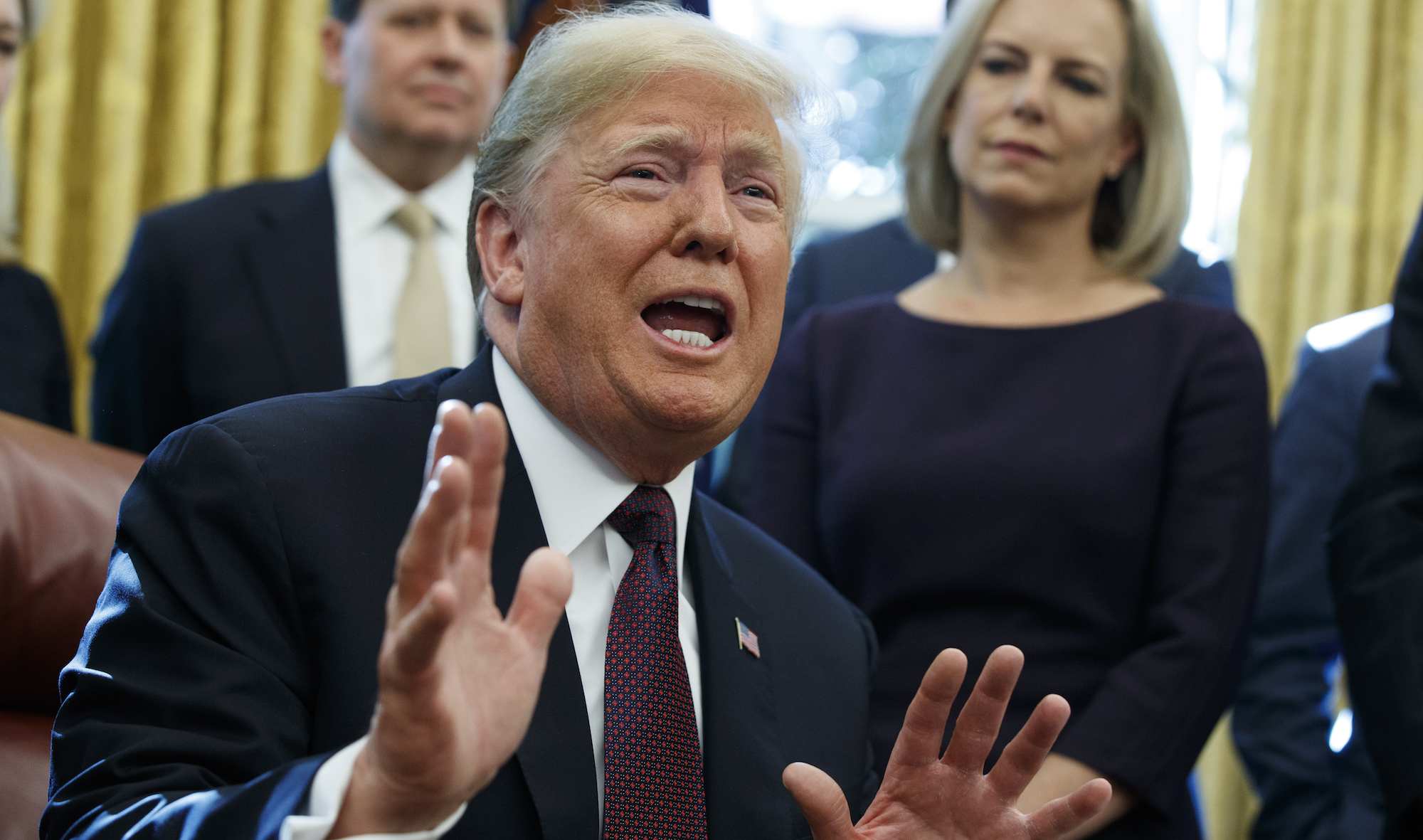Trump responds to Twitter’s fact-check by targeting social-media protections

The news: Two days after Twitter added fact-checking labels to US President Donald Trump's misleading tweets about mail-in voting, the president has signed an executive order aimed at weakening protections for social-media companies that moderate user content.
Why: Trump has promoted a long-running belief among conservatives that social-media companies are biased against their political views, despite a lack of solid evidence to support that claim. In the past, his administration has raised the possibility of regulating or punishing these companies.
What it means: The order targets Section 230 of the Communications Decency Act, a 1996 federal law that gives internet companies a great deal of autonomy over how they moderate content and shields them from legal liability for user-created content. According to an earlier draft, Trump's order could prompt the Federal Communications Commission to reconsider how the law is applied. Trump said the order calls for regulations to ensure that "social-media companies that engage in censoring or any political conduct will not be able to keep their liability shield." It would also, he said, direct federal agencies to ban "taxpayer dollars" from "social-media companies that suppress free speech." The version of the order Trump actually signed was not immediately available.
What Trump said: Trump's remarks rehashed some of the president's grievances with social-media companies, particularly Twitter. He claimed he would shut down Twitter, but that there were legal hurdles, and added that he would close his @realDonaldTrump account—which has 80 million followers—"in a heartbeat" if media coverage were more favorable to him. He also indicated that his administration would pursue legislation in Congress, and expected the order to trigger lawsuits.
Will it work? Experts have noted that while there's actually some bipartisan support for updating Section 230 to better reflect our current realities, Trump's executive order warrants a great deal of skepticism. Kate Klonick, a law professor at St. John's University School of Law in New York, told NPR that the order was essentially "political theater," and that it "flies in the face of 25 years of judicial precedent."
Deep Dive
Policy
A brief, weird history of brainwashing
L. Ron Hubbard, Operation Midnight Climax, and stochastic terrorism—the race for mind control changed America forever.
Africa’s push to regulate AI starts now
AI is expanding across the continent and new policies are taking shape. But poor digital infrastructure and regulatory bottlenecks could slow adoption.
Why the Chinese government is sparing AI from harsh regulations—for now
The Chinese government may have been tough on consumer tech platforms, but its AI regulations are intentionally lax to keep the domestic industry growing.
AI was supposed to make police bodycams better. What happened?
New AI programs that analyze bodycam recordings promise more transparency but are doing little to change culture.
Stay connected
Get the latest updates from
MIT Technology Review
Discover special offers, top stories, upcoming events, and more.